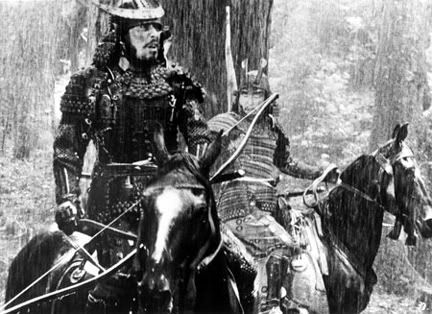As you get older, you tend to find yourself looking back more and more.
When you're young, chances are you couldn't wait to grow up because you wanted to do things you couldn't do as a child. But as we get older, I think many of us find that we want to go back, half-wishing that somehow we could reverse time, perhaps dreaming that we could change some things about the past.
Is life doomed to be full of nostalgia and regret?
Well, I think nostalgia can be a kind of recreation, so it's not really a bad thing. Regret, however, is much more difficult to judge. I won't say that we should never have regrets, because some things are worth regretting—without the prospect of regret, we might do things that we would do well to regret later. But is it worthwhile to live a life full of regrets?
As I reflect on it, it becomes more apparent how different and perhaps incommensurate with others' every individual's experiences are. You would think that people with broadly similar circumstances would have broadly similar experiences, but that's not necessarily true at all. While today's mainstream philosophy often regards experience as very much an internal thing—experience is intangibly subjective and thus it is impossible for one person to fully apprehend another's experiences—most people still intuitively think of it as an external thing—there is a real world that we are obviously interacting with and is therefore what determines our experiences.
I think the truth is somewhere in between (or a configuration of both?). How you felt, thought and acted are determined both by your circumstances and how you perceived them. The past is like this or that because you are partly responsible for making it the way it is, not just through your externally-oriented decisions but also through an internally-oriented one—how you chose to see and internalise your circumstances at that time.
Indeed, how you perceive the past is also a choice. However, there is a relatively inflexible element to memory in that it is to a large extent determined by past decisions you made, which are unchangeable. If you saw your days as miserable, you're likely remember them as miserable today whether you want to or not because the decision has been made in the past to perceive and thus remember them that way.
How you feel about the past is perhaps more of a choice. But, by extension, you're still relatively unfree to choose since the memory that you are reacting to is, as I mentioned above, inflexible even in the internal (self-determined) sense. Therefore, I think regret is often an unavoidable feeling.
What can certainly be helped and what really matters is your decisions on the present and, to some extent, on the future. And as I mentioned on New Year's eve, past experiences can help by informing these decisions. So you may regret things in the past, but don't let the mistakes you regret bleed into the present, either by persisting or by negatively affecting your ability to choose how you live your life today.
Thus, the past may be there to be wept over and the future may be there to worry about, but the present is here to be lived and enjoyed.
As we get older, I think we would do well to keep that in mind.


